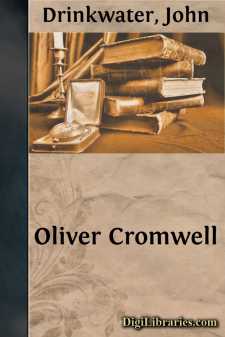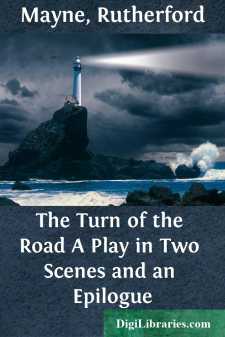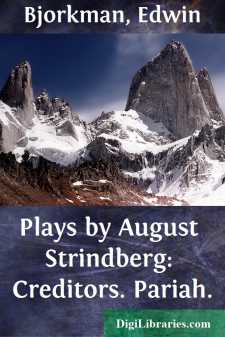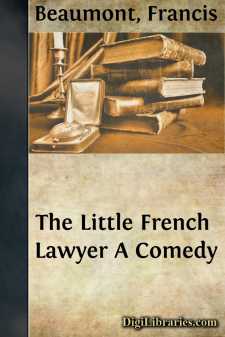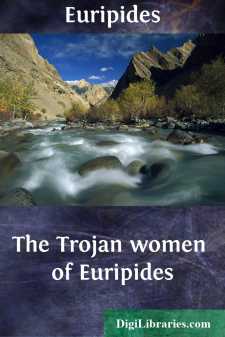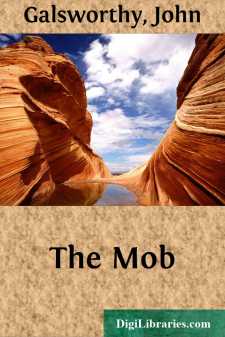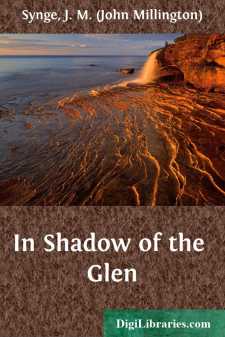Drama Books
Sort by:
by:
John Drinkwater
SCENE ICromwell'shouse at Ely, about the year 1639. An early summer evening. The window of the room opens on to a smooth lawn, used for bowling, and a garden full of flowers.Oliver'swife,Elizabeth Cromwell, is sitting at the table, sewing. In a chair by the open windowMrs. Cromwell, his mother, is reading. She is eighty years of age.Mrs. Cromwell:Oliver troubles me, persuading everywhere....
more...
by:
Rutherford Mayne
THE TURN OF THE ROAD. Mrs. Granahan.Is that the whole of them now Ellen?Ellen.Yes that's all now but one.She goes across to grandfather and lifts the plate.Have you finished granda?Grandfather.Yes dearie I have done.He pauses and fumbles for his pipe, &c.Is'nt that a fiddle I'm hearing?Ellen.Yes. Robbie's playing the fiddle in the low room. Mrs. Granahan.Arranging plates on...
more...
PREFACE Believing plays to be solely for the stage, I have never before allowed any of mine to be printed until they had first faced from a stage the judgment of an audience, to see if they were entitled to be called plays at all. A successful production also has been sometimes a moral support to me when some critic has said, as for instance of "A Night at an Inn," that though it reads passably...
more...
by:
Edwin Bjorkman
This is one of the three plays which Strindberg placed at the head of his dramatic production during the middle ultra-naturalistic period, the other two being "The Father" and "Miss Julia." It is, in many ways, one of the strongest he ever produced. Its rarely excelled unity of construction, its tremendous dramatic tension, and its wonderful psychological analysis combine to make it a...
more...
COSTUMES. The simplicity of the costuming as well as of the stage setting makes the play an easy one for amateurs to produce. The dress of the four school girls should be as modern as possible. Their hair should be elaborately arranged. Hippolyta should wear the dress of an Amazon, armor if possible, or a short skirt, sandals laced high with crossed strings, waist to match the skirt, a crown, and a...
more...
by:
William Archer
INTRODUCTION* Exactly a year after the production of Lady Inger of Ostrat—that is to say on the "Foundation Day" of the Bergen Theatre, January 2, 1866—The Feast at Solhoug was produced. The poet himself has written its history in full in the Preface to the second edition. The only comment that need be made upon his rejoinder to his critics has been made, with perfect fairness as it seems...
more...
by:
Francis Beaumont
Actus Primus. Scena Prima. Enter Dinant, a[n]d Cleremont. Din. Disswade me not. Clere. It will breed a brawl. Din. I care not, I wear a Sword. Cler. And wear discretion with it,Or cast it off, let that direct your arm,'Tis madness else, not valour, and more baseThan to receive a wrong. Din. Why would you have meSit down with a disgrace, and thank the doer?We are not Stoicks, and that passive...
more...
by:
Euripides
THE TROJAN WOMEN In his clear preface, Gilbert Murray says with truth that The Trojan Women, valued by the usage of the stage, is not a perfect play. "It is only the crying of one of the great wrongs of the world wrought into music." Yet it is one of the greater dramas of the elder world. In one situation, with little movement, with few figures, it flashes out a great dramatic lesson, the...
more...
by:
John Galsworthy
ACT I It is half-past nine of a July evening. In a dining-roomlighted by sconces, and apparelled in wall-paper, carpet, andcurtains of deep vivid blue, the large French windows betweentwo columns are open on to a wide terrace, beyond which are seentrees in darkness, and distant shapes of lighted houses. On oneside is a bay window, over which curtains are partly drawn.Opposite to this window is a door...
more...
IN THE SHADOW OF THE GLEN A PLAY IN ONE ACT SCENE.—{The last cottage at the head of a long glen in County Wicklow. Cottage kitchen; turf fire on the right; a bed near it against the wall with a body lying on it covered with a sheet. A door is at the other end of the room, with a low table near it, and stools, or wooden chairs. There are a couple of glasses on the table, and a bottle of whisky, as if...
more...


